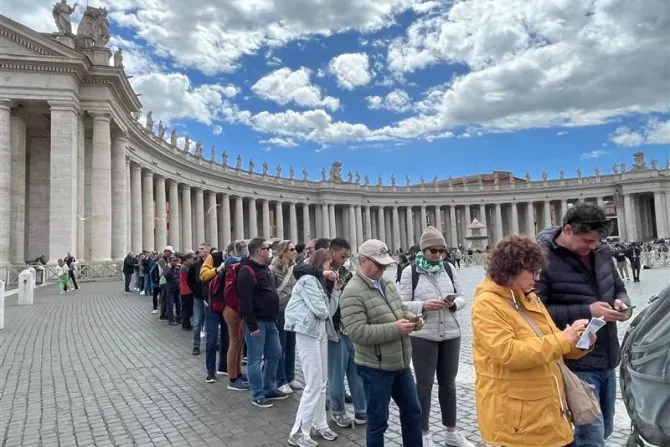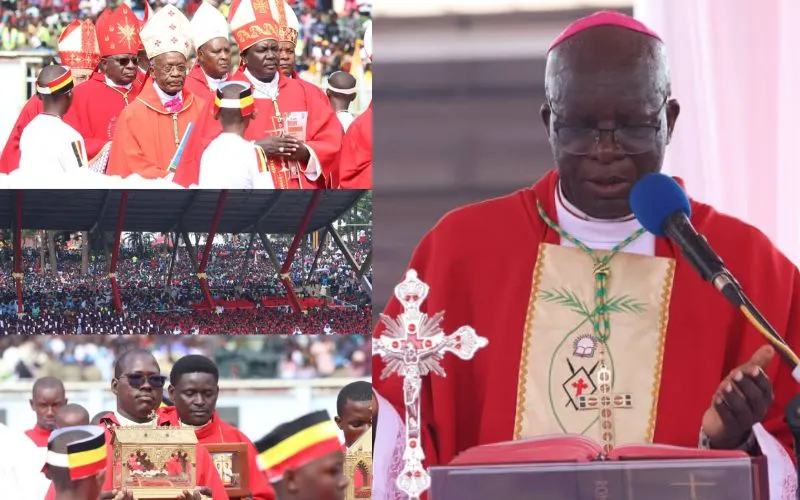Vatican, 14 April, 2023 / 8:04 pm (ACI Africa).
With 100,000 people cramming into St. Peter’s Square on Easter Sunday, the lines to enter the Vatican basilica have returned to their pre-pandemic wait times.
In light of the influx of tourists to the Eternal City, the Vatican has introduced a separate “prayer entrance” for Catholics who want to enter St. Peter’s Basilica for Mass, confession, or adoration.
The entrance, signaled only by a small sign, is immediately to the right of the barricades to enter through the metal detectors on the right side of the piazza.
 In response to the long wait times to enter St. Peter's Basilica, those who wish to enter for Mass, confession, or adoration can now do so via a special "prayer entrance" marked with a sign immediately to the right of the barricades to enter through the metal detectors on the right side of the piazza. Credit: Daniel Ibañez/CNA
In response to the long wait times to enter St. Peter's Basilica, those who wish to enter for Mass, confession, or adoration can now do so via a special "prayer entrance" marked with a sign immediately to the right of the barricades to enter through the metal detectors on the right side of the piazza. Credit: Daniel Ibañez/CNA
Mountain Butorac, who leads small groups of Catholics on pilgrimages to Rome with his company The Catholic Traveler, calls the prayer entrance “long overdue.”





 In response to the long wait times to enter St. Peter's Basilica, those who wish to enter for Mass, confession, or adoration can now do so via a special "prayer entrance" immediately to the right of the barricades to enter through the metal detectors on the right side of the piazza. Credit: Courtney Mares/CNA
In response to the long wait times to enter St. Peter's Basilica, those who wish to enter for Mass, confession, or adoration can now do so via a special "prayer entrance" immediately to the right of the barricades to enter through the metal detectors on the right side of the piazza. Credit: Courtney Mares/CNA


